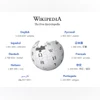The Delhi High Court, on Thursday, issued a contempt notice to the online encyclopaedia Wikipedia for not revealing details about users who made the alleged defamatory edits to news agency ANI’s page on its site.
Justice Navin Chawla threatened to shut down Wikipedia's operations in India if it continued to defy the court's orders. During the hearing, Justice Chawla said, “I will impose contempt... It is not a question of Defendant No 1 [Wikipedia] not being an entity in India. We will close your business transactions here. We will ask the government to block Wikipedia... You've made this argument before. If you don’t want to comply with Indian regulations, then don’t operate in India."
What is the case against Wikipedia?
The case involves certain edits on ANI's Wikipedia page, leading the news agency to sue the company for defamation. The court had previously ordered Wikipedia to reveal information about the three people responsible for these edits.
The court also ordered a Wikipedia representative to appear in person on October 25 for the next hearing.
The lawsuit alleged that the defamatory edits on its page labelled ANI as a "propaganda tool" for the current government. Subsequently, ANI filed a contempt application in the High Court, alleging that Wikipedia has not complied with the court's previous order.
Why did Delhi HC issue a contempt notice to Wikipedia?
Wikipedia argued that it needed time to make submissions regarding the order, citing its lack of a physical presence in India. Justice Chawla noted that this argument had been previously rejected and warned that the court would proceed with contempt of court action if the platform failed to comply.
More From This Section
Founded in 2001, Wikipedia has become the world's largest reference website, allowing anyone to edit its content in most cases. It features more than sixty-three million articles in over 300 languages.
“Anyone can edit Wikipedia's text, references, and images. What is written is more important than who writes it. The content must conform with Wikipedia's policies, including being verifiable by published sources. Editors' opinions, beliefs, personal experiences, unreviewed research, libellous material, and copyright violations will not remain. Wikipedia's software allows easy reversal of errors, and experienced editors watch and patrol bad edits,” it explains on the site.

)